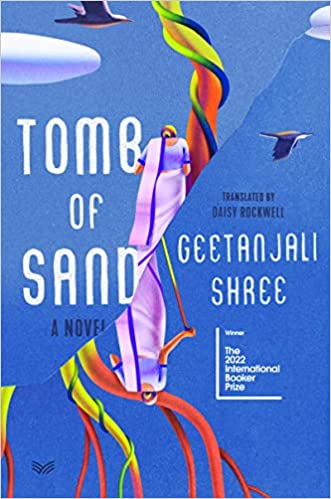
A tale tells itself. It can be complete, but also incomplete, the way all tales are. This particular tale has a border and women who come and go as they please. Once you’ve got women and a border, a story can write itself. Even women on their own are enough. Women are stories in themselves, full of stirrings and whisperings that float on the wind, that bend with each blade of grass. The setting sun gathers fragments of tales and fashions them into glowing lanterns that hang suspended from clouds. These too will join our story. The story’s path unfurls, not knowing where it will stop, tacking to the right and left, twisting and turning, allowing anything and everything to join in the narration. It will emerge from within a volcano, swelling silently as the past boils forth into the present, bringing steam, embers, and smoke.
There are two women in this story. Besides these women, there are others who came and went, those who kept coming and going, those who always stayed but weren’t as important, and those yet to be mentioned, who weren’t women at all. For now, let’s just say that two women were important, and of these, one was growing smaller, and the other bigger.
There were two women and one death.
Two women, one death. How nicely we’ll get on, us and them, once we all sit down together!
Two women: one mother, one daughter, one growing downwards, the other growing upward. One laughs and says, I’m growing smaller by the day! The other is saddened but says nothing when she sees herself growing bigger. The mother has stopped wearing saris now that she must stuff more than half the fabric into her waist and raise the hems of her petticoats a little higher each day. Does gradually growing smaller make you catlike, so you may slip through tiny cracks and escape? Puncture a border and slip right through? Develop a knack for near invisibility?
This must be the reason that the mother was able to slip through to the other side of the border while the daughter was still fretting over how stuck they were. It’s also possible that the smaller woman truly was innocent when she refused to confess to any crime on her part, be it regarding legal permissions, debates over names, or accusations of theft.
Those who didn’t understand her arguments considered her crazy, maybe even vicious. They suspected her of purposefully misleading.
She pointed out that men always get the high-quality dal and women just get leftover mash, don’t they? Hmm? She spoke fearlessly. So? So does that make it right?
But if you stare at them fearlessly, will the border guards understand? You have crossed the border, they reprimand.
She chuckles. Anything worth doing transcends borders.
Should I do nothing at all?
No, they retort, and no one is foolish enough not to know this. Even goats and cows know where not to stray. And your eyesight isn’t so bad you can’t see, so how can you be forgiven?
Who’s asking for forgiveness! She roars with laughter and the growing-bigger daughter weeps. And is this all there is to see? Perhaps I too have seen a thing or two. Try seeing with my eyes for once.
If she were to fall, she did not wish for it to be facedown. Wherever the bullet came from, wherever it hit, she would fall straight back and lie supine on the ground. Regally. Her eyes filled with sky.
Let me practice, she’d tell her daughter.
The mother had started hiccupping all the time. She hiccupped and hiccupped and hiccupped. If the daughter had not been in such a state, she’d have grown suspicious as to whether these hiccups were real or fake. They won’t stop with water; give me a slap on the back! the mother would command. If the slap isn’t hard enough, then try a running kick, boom! Try it on my back or in my stomach or on my sides, and make sure I fall down, but on my back, eyes open, forehead facing up; then the hiccups will surely stop. It was a strange remedy, but the daughter did as the mother asked. She kicked and kicked, boom boom boom, and with this new game her mother kept falling over bam bam bam. After a bit of hullabaloo, observers would also burst out laughing—Can you beat it? This old lady’s too much! But the mother told the daughter that she needed to be prepared.
Anyway, long story short, what happened was this: a bullet
did come flying toward her, but by then the mother had become an expert at falling backward. A bullet came, punctured her body, shot through and out the other side. Anyone else would have sprawled facedown in the mud, but Ma flipped backward like she was doing a somersault. She lay back on the ground in an attitude of victory, elegantly, faceup, as though she were reclining on a soft bed, the sky her coverlet.
Those who consider death to be an ending took this to be hers. But those in the know knew that this was no ending; knew she’d simply crossed yet another border.
So there’s no harm in starting the story right here, that is, the way we’re doing it right now.
__________________________________
From Tomb of Sand by Geetanjali Shree, translated by Daisy Rockwell. Used with permission of the publisher, HarperVia. Copyright © 2023 by Geetanjali Shree.


